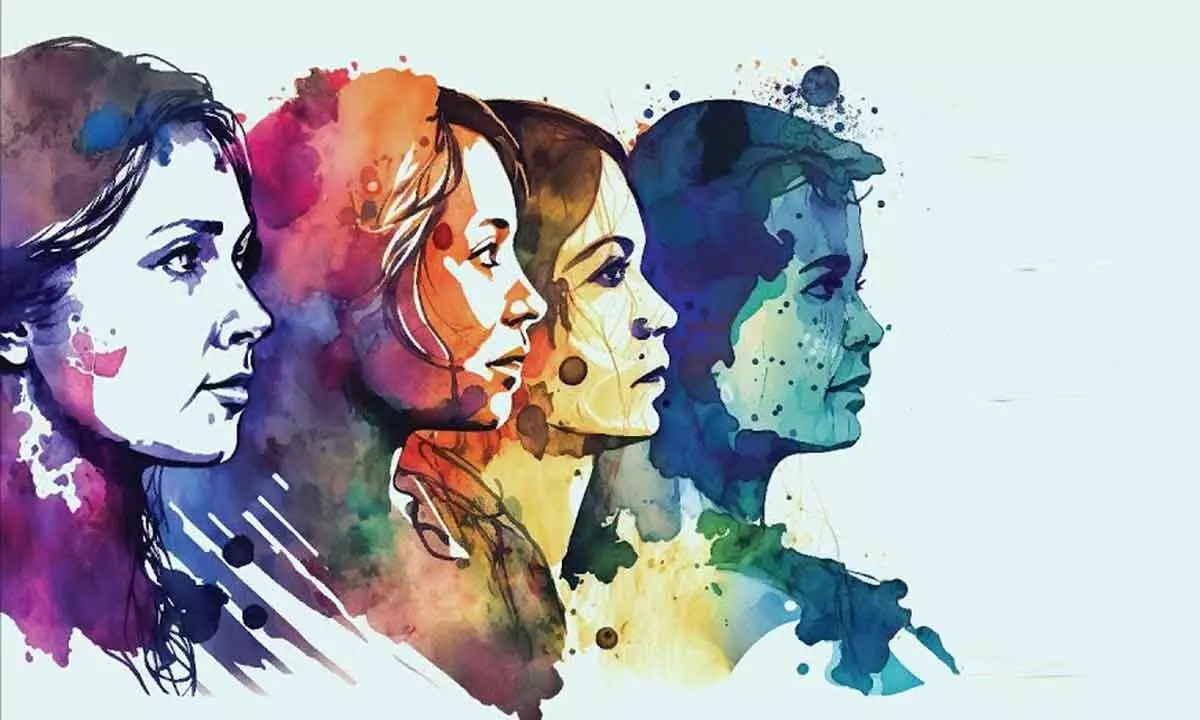Live
- Strict measures in Place for AP SSC examinations
- Kancha Gachibowli land: Activists launch campaign to preserve urban lung space
- GHMC proposes euthanasia for aggressive strays
- Over 6 lakh Olive Ridleys turn up at Gahirmatha
- Two women journos held for ‘defaming’ CM
- 25 lakh ‘Lakhpati Didis’ in next 5 years: Patra
- Villagers come together against illegal mining
- NALCO holds Customers’ Meet
- Notorious criminal injured in encounter
- Food safety officials inspect mangoes at Mozamjahi mkt
Women-led development, a victory for democracy


Prime Minister Narendra Modi on Wednesday hit out at the Trinamool Congress (TMC) for unleashing “a reign of terror” on women in West Bengal and said...
Prime Minister Narendra Modi on Wednesday hit out at the Trinamool Congress (TMC) for unleashing “a reign of terror” on women in West Bengal and said that the ripples of the Sandeshkhali issue would be felt across the state. “The women of Bengal will put an end to TMC’s mafia raj,” he said, adding that: “In Bengal, women faced atrocities under the TMC rule. What happened in Sandeshkhali is no less than a ghor paap (grave sin). But the TMC government has no sympathy for the mothers and sisters of Bengal. Instead, it made all efforts to protect the offenders. Now the state government has received a setback (over the issue), first at Calcutta High Court and then at the Supreme Court.”
Though the Prime Minister himself expressing anguish at atrocities against women raises hopes of justice, the tone and tenor could be politically motivated. Ahead of the crucial general elections, it is not surprising and illogical that issues are raised by political parties, targeting their rivals. Only thing that matters is after the elections the leaders should stop politicisation, especially of sensitive and all-important issues concerning women. Elections or not, Sandeshkhali-like incidents in democratic societies shall put all state governments to shame, since law order is a state subject under Seventh Schedule of the Constitution.
All over the world, women’s rights remain under threat. The twenty-fifth anniversary of resolution 1325 (2000), the landmark resolution on women, peace and security, is just a year away. Neither the atrocities reduced nor the immunity and impunity of those who commit them. Resolution 1325 adopted by the UN Security Council on October 31, 2000 urges all actors to increase the participation of women and incorporate gender perspectives in all United Nations peace and security efforts. There is a louder call than ever before to empower women financially and politically, by investing in their welfare to improve their participation in development as well as peace and order in the society.
Meanwhile, it is a matter of some solace that India was ranked at 127 out of 146 countries in terms of gender parity, an improvement of eight places, according to World Economic Forum (WEF). It noted that India had attained parity in enrolment across all levels of education. Education helps women build self-confidence, gain financial independence, head organisations, become change makers; it also helps them tackle the shackles of child marriage and dowry. They become emboldened to resist discrimination. WEF reported that India closed 64.3% of the overall gender gap. However, it had reached only 36.7 % parity on economic participation and opportunity. That remains a matter of concern.
The interim budget set the target of ‘Lakhpati Didis’ for self-help group members to earn a sustainable income of at least one lakh rupees a year. There are 83 lakh SHGs across the country with nine crore women. The government will invest in skills development of 2 crore women to enhance their livelihoods.
While this initiative warms up hearts, rising crimes against women should disturb all. According to a 2023 report by the National Crime Records Bureau (NCRB), crimes against women increased by 4% in 2023. Percentage-wise it may appear small, but soaring from 3,71,503 cases in 2020 to 4,45,256 cases in 2022, they speak of growing troubles for women in country. It calls for greater sensitisation drives, and swift response to reported crimes, and speedy trials. At every level, there is a need for greater investment of both concern or cash for safety and welfare of women in the country. There are more women than men in India, as per the fifth National Family and Health Survey.

© 2025 Hyderabad Media House Limited/The Hans India. All rights reserved. Powered by hocalwire.com






